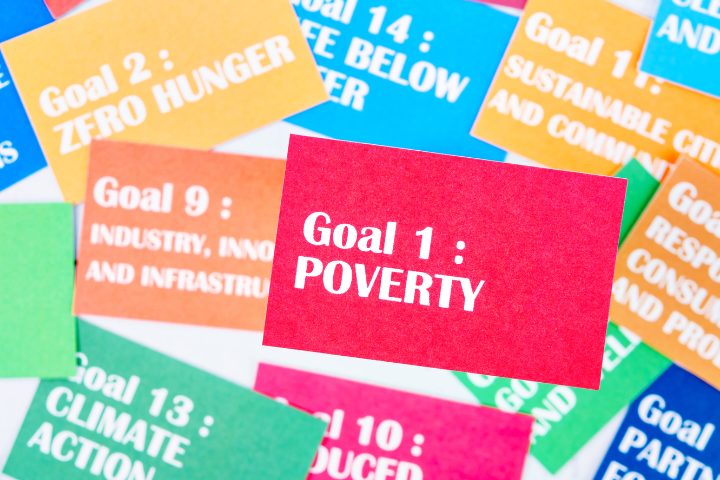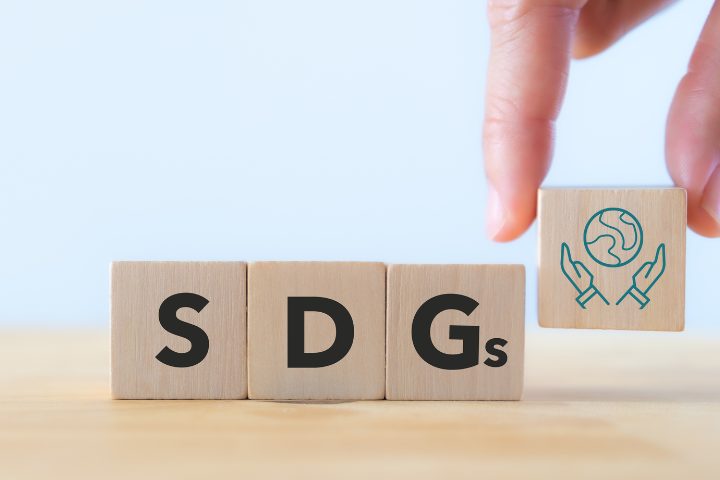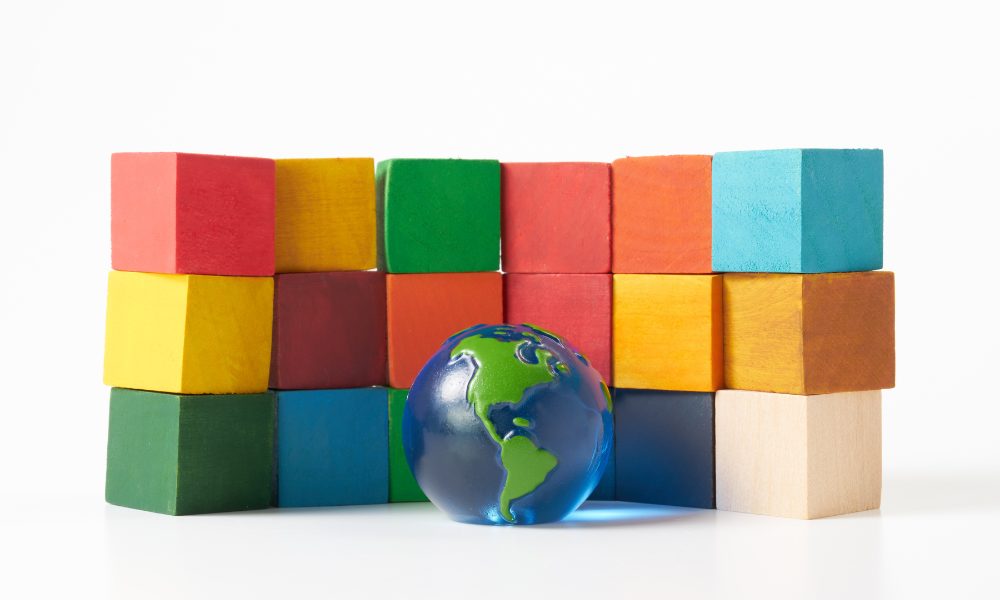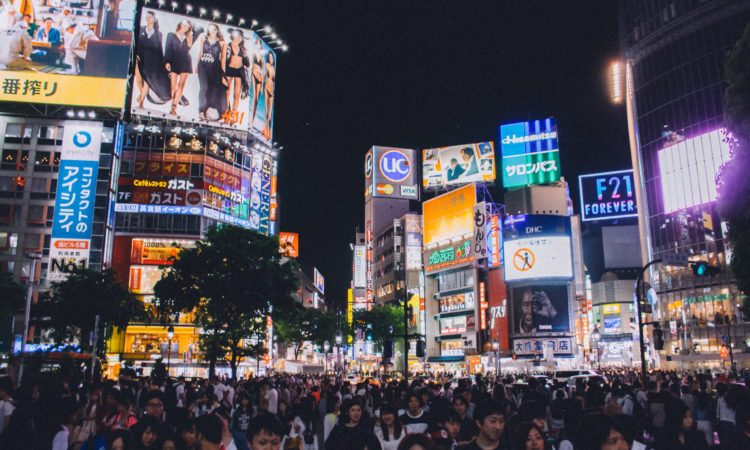Established by the United Nations in 2015 and embraced by 193 nations, the Sustainable Development Goals (SDGs) consist of 17 objectives that aim to foster sustainable development across economic, environmental, and social dimensions, aspiring to enhance global well-being and create a better world by 2030.
SDGs Ranking: Japan
2023 did not bring good news for Japan regarding SDGs, as the country sees its global ranking falling from the 19th to the 21st position according to the ranking released by The Sustainable Development Solutions Network (SDSN) and Germany’s Bertelsmann Foundation. While some of Japan’s SDG efforts are praised, numerous issues persist in reaching the goals.

Image Credit: Canva
SDGs Global Overview
Globally, top-rated countries for SDG performance include Finland, Sweden, and Denmark, while South Sudan, the Central African Republic, and Chad face lower ratings. SDSN observes that developing countries are improving in SDG attainment but still lag, while developed nations often neglect climate change and biodiversity conservation. To achieve SDGs globally, SDSN recommends enhancing GDP in developing countries, allocating funds from developed nations and the IMF, and expanding SDG financing.
The year 2023 is considered a pivotal “turnaround year” for the Sustainable Development Goals (SDGs), which span from 2016 to 2030. However, the latest report indicates that the SDGs are “significantly off track,” emphasizing the urgency of the situation. The global achievement rate for the SDGs remains below 67% in 2022, largely influenced by the repercussions of the COVID-19 pandemic. Alarmingly, none of the 17 individual goals are projected to be globally achieved. This assessment highlights the world’s formidable challenges in fulfilling the SDGs, underscoring the need for accelerated efforts and comprehensive strategies to address the pressing issues hindering their accomplishment.
What Are the Major Challenges for Japan?
Japan achieved SGDs in “Quality education” (Ensuring inclusive and equitable quality education) and “Industry, innovation, and infrastructure” (Building resilient infrastructure, promoting inclusive and sustainable industrialization, and fostering innovation.)
Japan faces significant challenges in achieving the Sustainable Development Goals (SDGs), particularly in specific goal areas:
- “Gender equality” with concerns regarding the gender wage gap and seats held by women in the national parliament
- “Responsible consumption and production” with concerns regarding the production of electronic waste and the export of plastic waste
- “Climate action” with concerns regarding in particular CO₂ emissions from fossil fuel combustion and cement production
- “Life below water” with concerns regarding ocean health and fish caught from overexploited or collapsed stocks
- “Life on land” with concerns regarding loss in biodiversity and species.
Japan’s Initiatives in Advancing the SDGs
Japan has actively promoted the Sustainable Development Goals (SDGs) through various initiatives. Following the SDGs’ adoption in 2015, Japan established domestic infrastructure, including the Headquarters for SDG Promotion in 2016, headed by the Prime Minister. This initiative involved key figures, such as the Chief Cabinet Secretary and the Minister of Foreign Affairs. The “SDGs Implementation Guidelines” were finalized in December 2016 through a collaborative process, engaging stakeholders like the government, private sector, NGOs, NPOs, experts, and international organizations.
Japan has consistently participated in the Voluntary National Review (VNR), providing a comprehensive overview of its progress in SDG implementation. The country actively engages in global forums, including the High-Level Political Forum (HLPF), to contribute to the global assessment of SDG progress. Moreover, Japan plays a leadership role in SDG Summits, with Prime Minister Kishida presenting the country’s efforts in the 2019 and 2023 Summits. Japan’s focus areas include education, health and welfare, industry, and technological innovation. However, challenges persist in addressing environmental issues, promoting gender equality, and fostering a sustainable natural environment. These actions underscore Japan’s commitment to the global pursuit of sustainable development outlined in the SDGs.
Hello Kitty to Promote SDGs in Japan
Hello Kitty, as the TOKYO Welfare Work Ambassador collaborating with the UN for SDGs awareness, strives to create a world of empathy and smiles. Since 2002, she has visited hospitals, special education schools, and disaster areas to bring joy. Hello Kitty’s engagement with the SDGs started in 2018 through her YouTube channel, and she officially partnered with the UN in 2019. Reflecting on impactful experiences overseas, she underscores the importance of Goal 3, ensuring healthy lives. Positive reactions in Tokyo have sparked interest in welfare, with people appreciating her popular status. Eager to engage globally, she believes a warm “Hello!” and a smile can connect people worldwide, emphasizing the universality of her efforts.
 Image Credit: Canva
Image Credit: Canva
What Is Next for Japan to Reach SDGs?
Japan has received positive recognition for its SDG efforts, particularly in education, health, welfare, and technological innovation. However, the country faces challenges related to its environmental impact, primarily driven by carbon dioxide emissions and the negative environmental effects of imported goods.
To truly align with SDG principles, Japan must prioritize environmental considerations, focusing on carbon reduction and waste reduction.
Additionally, addressing gender equality remains a significant issue. To fully realize the SDGs, Japan needs to intensify efforts towards creating a sustainable environment and fostering a society that upholds equality for all.
Further commitment and actions are essential to achieve a comprehensive and well-rounded implementation of the SDGs.
Related Articles:
- Moenai Gomi or Moeru Gomi? 3 Easy Steps to Follow in Sorting & Throwing Out Your Trash
- Things You Need to Know About the Japanese Bike Culture
- Top 10 Ways to Be More Eco-Friendly in Japan for Residents and Tourists
Top 10 Ways to Be More Eco-Friendly in Japan for Residents and Tourists
Featured Image Credit: Pixta






